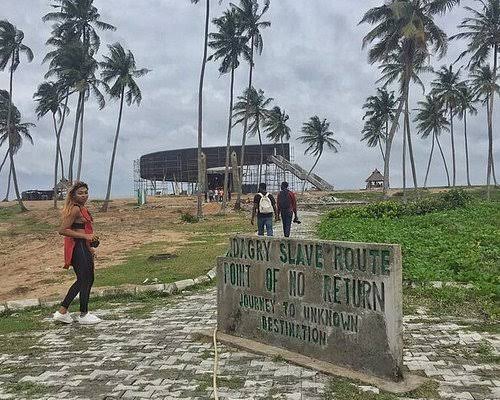The Lagos State government in collaboration with Wikimedia Foundation has launched a project geared towards encouraging Nigerian Journalists to write and project tourist sites in Lagos.
The project tagged the ‘Wiki Imagine Lagos Project’ was launched to unearth the vast tourism potential of states across Nigeria, and Lagos State is leading the charge.
For too long, the rich tapestry of Lagos’ history and culture has remained under-documented in global narratives.
The project has catalyzed a partnership between Lagos State, in South West Nigeria, and Wikimedia User Group Nigeria, with a shared objective of spotlighting the iconic heritage sites of Lagos on the global stage through Wikipedia.
The Lagos State Commissioner, Ministry of Tourism, Arts, and Culture, Mrs Adetoke Benson Awosika, in a webinar organised for the project launch expressed full commitment and readiness to support the project with adequate resources.

On the Wikipedia event meta page is a list of 100 heritage sites including hotels, resorts, and other historical landmarks provided by the collaborating ministry, with the aim of guiding the writers on areas to focus, while carrying out the documentation. Some of them include: The Badagry Slave Museum or Point of No Return, The Terra Kulture, Muson Center, The Historic Old Oba Akran Palace, Palace of the Ayangburen, Ikorodu, Hotels, Resorts and many others.
As part of the reforms and policies that seek to drive economic growth and cultural diplomacy, the 2005 National Tourism and Hospitality Policy was recently revised with the aim to address modern challenges and opportunities in tourism and hospitality emphasising cultural exchange, economic diversification, and global competitiveness.
Key Players
Hotels in Lagos as a spotlight are key players in promoting Nigeria as a top tourist and business destination, indirectly stimulating industries such as logistics, food services, and small-scale enterprises. One of such hotels is the Eko Hotel and Suites located on Victoria Island and a flagship of Nigerian hospitality.
The hotel originally built in 1977 to host dignitaries during the 1977 Festival of Black Arts and Culture (FESTAC), has over 824 rooms and suites equipped with state-of-the-art amenities, architecture, gardens and has hosted numerous high-profile events, including international conferences, concerts, and weddings.
Another pivotal hotel consequentially important to Lagos heritage sites is the Radisson Blu Anchorage Hotel situated on the scenic Lagos Lagoon. The Radisson Blu Anchorage Hotel has a blend of modern design and traditional Nigerian architecture with intricate wood carvings, and ornate furnishings. It offers 170 rooms and suites, also equipped with state-of-the-art amenities. Guests can easily access nearby cultural attractions like the National Museum, another enlisted heritage site worthy of exploring.
The Sheraton Hotel has been in the heart of Ikeja, Lagos state’s capital since 1985. It offers a hub for business and leisure for travelers alike. This hotel features 325 rooms and suites, each adorned with Nigerian artworks to signify local engagement with art curators. Guests can indulge in fine dining, an outdoor pool, or explore the nearby cultural hotspots like the Ikeja City Mall. The Sheraton Hotel is also equipped with state-of-the-art meeting and event facilities, with a short proximity to the Murtala Muhammed International Airport.
These hotels and many more offer a rich blend of Nigeria and Lagos cultural heritage.
From the museums, beaches and monuments to the hotels and resorts, each of these offer a unique perspective on the fascinating history, vibrant culture, and warm hospitality of Lagos. It is expected that policies, innovations and interventions in the culture and tourism sector will make Nigeria maximise her potentials in global competitiveness.
The Lagos and Wikimedia collaboration project supports Sustainable Development Goal 11 which reads- ‘Focusing on creating inclusive, safe, and sustainable urban settlements ’.
By leveraging Wikipedia’s global platform, this project seeks to highlight Lagos State’s unique historic heritage sites, and economic vibrancy to a global audience.
The project is indeed a strategy to expand Wikipedia’s footprint in Africa and cater to projecting Nigeria’s growing tourism and business sectors.
Emmanuel Ukoh


Comments are closed.